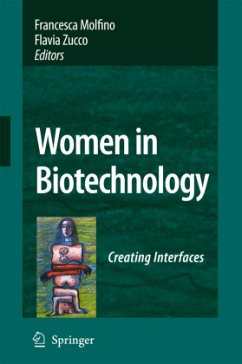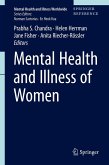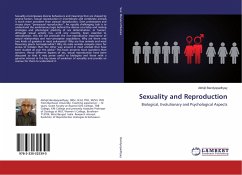This is a study of the relationships among women scientists, particularly biotechnologists. It also explores the perspective of other disciplines, seeking to bridge the communication gap between science, the humanities and different feminist groups.
Johannes Klumpers Biotechnologies, such as genetic engineering, cloning and biodiversity, raise many legal and ethical concerns, so it is important that people understand these issues and feel able to express their opinions. This is why the European Commission has been, for a number of years, supporting actions to improve communication among scientists in these diverse areas. The project 'Women in Biotechnology' (WONBIT), financed under the 6th Framework programme of the European Commission, is an excellent example of what can be done to target opinion-formers such as scientists, economists and lawyers in bottom-up activities, and to encourage a debate on gender issues triggered by developments in the life sciences. WONBIT gave rise to a successful international conference highlighting the importance of adopting good practices and ethical considerations in parallel with the rapid pace of progress in biotechnology - from a woman's point of view. In particular, the conference addressed women in decision-making positions in b- technology with specific reference to scientific excellence, social competencies and management qualities as well as issues relating to environment, society and the younger generation. But it did not stop there: a key part of the conference was dedicated to stimulating public debate among non-specialists, which has led to a number of recommen- tions to policy-makers on better communication in biotechnology, on taking better account of the gender aspects of research, and on involving more women in the decision-making process that surrounds developments in biotechnology.
Johannes Klumpers Biotechnologies, such as genetic engineering, cloning and biodiversity, raise many legal and ethical concerns, so it is important that people understand these issues and feel able to express their opinions. This is why the European Commission has been, for a number of years, supporting actions to improve communication among scientists in these diverse areas. The project 'Women in Biotechnology' (WONBIT), financed under the 6th Framework programme of the European Commission, is an excellent example of what can be done to target opinion-formers such as scientists, economists and lawyers in bottom-up activities, and to encourage a debate on gender issues triggered by developments in the life sciences. WONBIT gave rise to a successful international conference highlighting the importance of adopting good practices and ethical considerations in parallel with the rapid pace of progress in biotechnology - from a woman's point of view. In particular, the conference addressed women in decision-making positions in b- technology with specific reference to scientific excellence, social competencies and management qualities as well as issues relating to environment, society and the younger generation. But it did not stop there: a key part of the conference was dedicated to stimulating public debate among non-specialists, which has led to a number of recommen- tions to policy-makers on better communication in biotechnology, on taking better account of the gender aspects of research, and on involving more women in the decision-making process that surrounds developments in biotechnology.
From the reviews:
"Women in Biotechnology examines legal, ethical, scientific, and technological issues related to development in biological technology from a woman's point of view. ... this volume is a collection of papers presented at the international Wombit Conference dealing with women in biotechnology in Rome, Italy, in June 2007. ... it is also accessible to general readers and academic audiences in other science fields. Summing Up: Recommended. Academic, general, and professional libraries, all levels." (C. A. Klevickis, Choice, Vol. 46 (7), March, 2009)
"Women in Biotechnology examines legal, ethical, scientific, and technological issues related to development in biological technology from a woman's point of view. ... this volume is a collection of papers presented at the international Wombit Conference dealing with women in biotechnology in Rome, Italy, in June 2007. ... it is also accessible to general readers and academic audiences in other science fields. Summing Up: Recommended. Academic, general, and professional libraries, all levels." (C. A. Klevickis, Choice, Vol. 46 (7), March, 2009)








